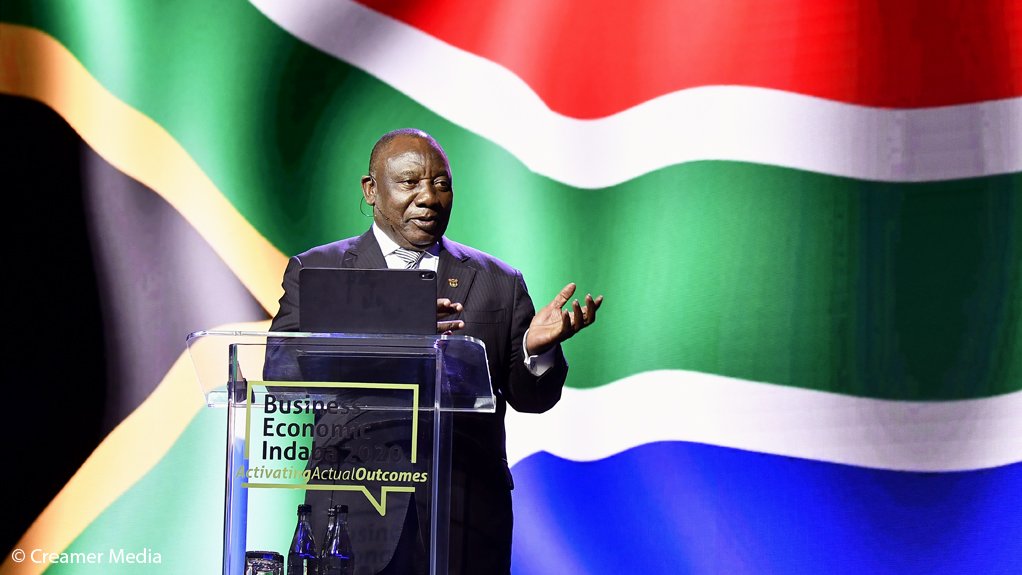A new United Nations Conference on Trade and Development (Unctad) report estimates that foreign direct Investment (FDI) flows to Africa rose by 3% to $49-billion ($47-billion) in 2019, with South Africa consolidating on the recovery it recorded in 2018, when inflows more than doubled from $2-billion to $5.3-billion.
Unctad’s latest Global Investment Trends Monitor, released on Monday, states that South Africa received inflows of $5-billion last year, while Egypt remained the continent’s largest FDI recipient, with inflows of $8.5-billion. Investments into Africa’s largest economy, Nigeria, surged by 71% to $3.4-billion.
The report states that, in addition to intra-company transfers by investors, investment into South Africa was led by mergers and acquisitions in business services and petroleum refining.
FDI to Southern Africa as a whole increased by 37% to $5.5-billion mainly as a result of a slowdown in net divestment from Angola. FDI flows to East Africa remained steady at $8.8-billion, but flows to Ethiopia, Africa’s fastest-growing economy, slowed down by a quarter to $2.5-billion.
Flows to West Africa increased by 17% to an estimated $11-billion, while the 5% rise in FDI flows to Egypt, were insufficient to offset an 11% fall, to $14-billion, in overall FDI to North Africa.
Unctad warns that persistent global economic uncertainty, coupled with the slow pace of reforms seeking to address structural productivity bottlenecks in many economies, continue to hamper investment across the continent.
South Africa’s performance, meanwhile, comes amid a concerted push by President Cyril Ramaphosa to increase investment in what has been a chronically poor-performing economy since the global economic crisis of 2008.
South Africa is unlikely to have expanded by better than 1% in 2018 and the outlook for 2019 remains subdued, owing to ongoing policy uncertainty, power shortages, corruption and fiscal imbalances, which are weighing heavily on investor and consumer confidence.
Ramaphosa announced in 2018 that South Africa was aiming to attract direct investments of $100-billion over the five-year period to 2023, which, using 2018 exchange rates, translated to investments of R1.2-trillion.
In November, investment commitments worth R363-billion were made by domestic and foreign firms at the second South African Investment Conference, eclipsing the 2018 figure by some 17%.
Nevertheless, the slow pace of reform in the energy, water, transport and telecommunications sectors, together with uncertainty in the tourism and mining sectors and serious governance and financial problems across most of the country’s State-owned companies, is undermining higher levels of investment.
Ramaphosa told delagates to the recent Business Economic Indaba 2020 that government remained committed to clearing the obstacles to investment, while Finance Minister Tito Mboweni indicated days later that South Africa had “no choice but to remain steadfast in implementing operational and governance reforms in all the State-owned enterprises (SOEs)”.
“The pressures and risks that SOEs, particularly Eskom, pose to the South African economy, cannot be overstated,” Mboweni said.
Unctad believes FDI flows will rise moderately in 2020 on the back of projections pointing to an improvement in macroeconomic conditions, which could prompt multinational enterprises to resume investments in productive assets.
It estimates that global FDI remained flat, at $1.39-trillion, in 2019, representing a 1% decline from a revised $1.41-trillion recorded in 2018.
EMAIL THIS ARTICLE SAVE THIS ARTICLE ARTICLE ENQUIRY
To subscribe email subscriptions@creamermedia.co.za or click here
To advertise email advertising@creamermedia.co.za or click here











